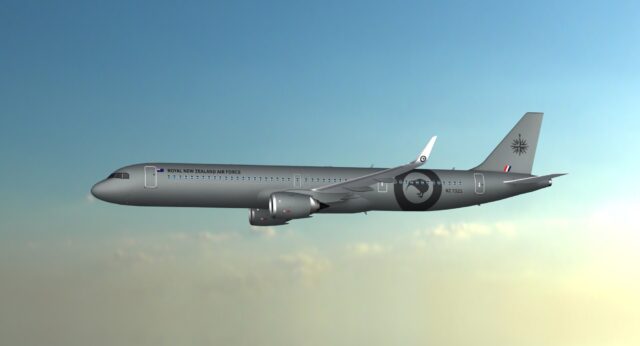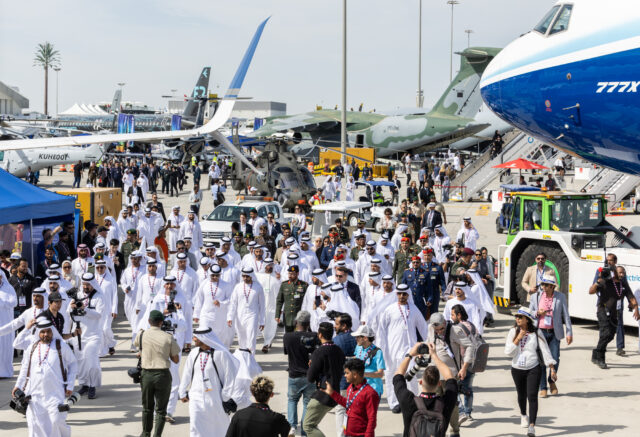A bad week for Boeing
October 25, 2024

The Boeing-made Intelsat 33e satellite, which was launched in 2016 and provides communications across Europe, Asia and Africa, experienced “an anomaly” on Saturday, and exploded after efforts to repair it failed.
On Monday, a China Southern Airlines Boeing 787 Dreamliner Fuselage sustained heavy damage during a tail strike on landing. The aircraft’s tail and rear fuselage made a hard contact with the Runway suffering a 2.47g impact.
On Wednesday, striking Boeing workers rejected the company’s latest offer, and are staying out on strike. Q3 results showed that the company had lost a staggering $6 billion on $17 billion in revenue, the result of a perfect storm of the strike action and charges (totalling $2.6 billion in during the recent third-quarter alone) in its commercial and defence businesses.
On Thursday, Robert Isom, the CEO of American Airlines told CNBC “I look forward to the day when they’re not just a distraction. We’ve been struggling with them over the last five years. “We need them to deliver quality aircraft on time. I look forward to the phone call when Boeing says we’re able to do so. We need Boeing to be strong. At the end of the day though, we need them to deliver quality aircraft on time. And I’ll be welcoming that phone call when Boeing says, ‘We’re going to do that.’”
Boeing’s troubles are deep-rooted and long standing. The commercial airliner portfolio is not competing as well as it could with the latest Airbus offerings, and some believe this is due to inadequate investment and excessive conservatism. The Boeing 737MAX, in particular, has experienced major difficulties, while on the defence side, the KC-46A Pegasus tanker and T-7A Redhawk trainer have suffered delays and technical difficulties, and have attracted significant charges (penalties).
Respected analyst Jon Ostrower of the Air Current judged that: “Boeing broke itself…
Systematic and strategic intentional strife designed into labor relations over decades creates an environment where once leverage shifts, the pendulum is incredibly hard (& expensive) to swing back… No airplane Airbus could ever invent could do this much damage to Boeing.”
Boeing President and CEO Kelly Ortberg shared a message with all employees on Wednesday, before the third quarter financial results webcast, noting that: “When it comes to our future the only way to be successful is by working together… It will take time to return Boeing to its former legacy but, with the right focus and culture, we can be an iconic company and aerospace leader once again. We will be focused on fundamentally changing the culture, stabilizing the business and improving programme execution, while setting the foundation for the future of Boeing. To define that future, we will stay true to our roots and the values that defined our legacy.”
During the earnings call, Ortberg acknowledged that: “The trust in our company has eroded. We’re saddled with too much debt. We’ve had serious lapses in our performance across the company which have disappointed many of our customers.” He again stressed the need to change leadership culture, stabilise the business, improve programme execution and establish firm foundations for the future.”
Ortberg is determined to move Boeing forward, and believes that getting back to the values that helped define Boeing’s legacy is what will define and ensure the company’s future.
“This is a company that ushered in the new era of air travel and helped land the first man on the moon,” he noted. “This is a big ship that will take some time to turn, but when it does, it has the capacity to be great again… It will take time to return Boeing to its former legacy, but with the right focus and culture, we can be an iconic company and aerospace leader once again,” Ortberg said.
Ortberg said that: “Boeing is an airplane company and at the right time in the future we need to develop a new airplane. But we have a lot of work to do before then. This includes stabilizing our business, improving execution on the development programs, streamlining the portfolio to do what we do well and restoring the balance sheet so that we do have a path to the next commercial aircraft.”
Ortberg plans to reset priorities and create a leaner, more focused organization, reducing what he called non-essential activity and concentrating on specific ‘core’ areas. Determination of the core/non-core areas is already underway, with decisions as to whether to shed non-core parts of Boeing by the end of the year.
Ortberg reaffirmed Boeing’s commitment to acquire Spirit AeroSystems, and said that making wholesale changes at Boeing Global Services (which achieved solid financial results) was “not my priority right now” though elements of the BGS portfolio may be part of the core/non-core decision process.
Ortberg does not plan to walk away from its troubled military contracts, though he admitted that there was: “no magic bullet,” to achieving profitability on the most challenging contracts, which include the KC-46 tanker, the T-7A trainer, the MQ-25 autonomous unmanned carrier-based tanker and the VC-25B presidential transport aircraft.
Ortberg said that: “Even if we wanted to, I don’t think we can walk away from these contracts. These are core customers that need this capability. We’ve got long-term commitments to them.”
Boeing remains optimistic that programmes like the KC-46 Pegasus tanker will eventually return the company’s defence business to profitability, despite having triggered roughly US $7 billion in penalty charges. But the company also aims to reconfigure the Boeing defence portfolio to be “much more balanced, with less risky programmes and more profitable programmes.” Crucially the company will ensure that bids and proposals will be more disciplined, and risks will be more tightly controlled. This is a change that is already underway, and is the reason that Boeing withdrew its bid for the Survivable Airborne Operations Center programme.
Ortberg has reportedly acknowledged plans to move away from the Boeing Space
Business. The company’s Core Competency approach will see Commercial and Defence being prioritised, which is perhaps unsurprising after Boeing’s ill-fated Starliner mission was forced to return to Earth empty, leaving two NASA astronauts stranded aboard the International Space Station waiting for the rival SpaceX mission to get home. “We have to improve our systems engineering and design capability so that never happens again,” Ortberg observed, darkly.
















